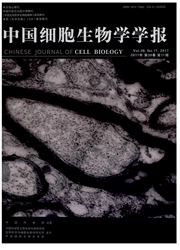

 中文摘要:
中文摘要:
幽门螺杆菌(Helicobacter pylori,H.pylori)作为人类最常见的模式病原菌和致病菌之一,其与胃黏膜上皮接触及定植后,可通过一系列复杂的生物学过程引起宿主固有免疫和适应性免疫异常,并可导致胃黏膜损伤、溃疡形成,甚或癌前病变;也可累及胃肠道以外多个脏器病变。炎症免疫反应是H.pylori黏膜损伤的重要病理生理机制。在此过程中,凭借胃黏膜复杂而精细的免疫调节功能,胃上皮细胞不仅是H.pylori接触感染的首道防线或受害者,更可能作为主动或直接参与者,在局部防御或免疫损伤的病生理过程中发挥了重要调节作用,这些与作为模式识别受体的天然免疫分子调控密切相关。针对H.pylori感染及损伤机制,如何继续从细胞和分子水平以及细菌与宿主两方面深入研究,并在此基础上加强免疫干预以及个体化治疗与群体预防策略,可能是H.pylori基础与临床研究的关键问题。
 英文摘要:
英文摘要:
Helicobacter pylori (H.pylori) is one of the most common pattern pathogenic bacteria and pathogens in human. Their contact with the gastric epithelium and colonization may cause the host innate and adaptive immune abnormalities through a series of complex biological processes, and thus lead to gastric mucosal damage, ulcer or even precancerous lesions, also involve a number of extra-gastrointestinal diseases. Inflammatory reaction is an important pathophysiological mechanism in mucosal lesion of H. pylori infection. During this process, by virtue of the complex and delicate mucosal immune regulation function, probably, gastric epithelial cell is not only the first line of defense against H. pylori infection, but also an initiative or direct participant. It plays an important role in the local defense or pathophysiological process of immune injury, which is closely related to the molecular control in innate immunity as pattern recognition receptors. With the infection and injury mechanism of H. pylori, how to continue the study both on the cellular and molecular level and bacteria versus host, how to strengthen the immune intervention, individualized treatment and social prevention, may be the key issues in the basic and clinical study.
 同期刊论文项目
同期刊论文项目
 同项目期刊论文
同项目期刊论文
 期刊信息
期刊信息
